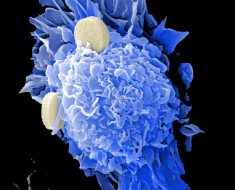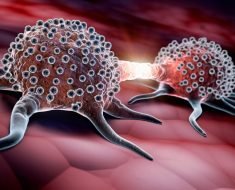
Increased severe acute respiratory syndrome coronavirus 2 (SARS-CoV-2) abundance and low anti-SARS-CoV-2 antibody response are associated with COVID-19 mortality, while hospital-acquired respiratory pathogen acquisition is not associated with fatal outcomes, according to a study published online Aug. 31 in Nature Microbiology.
Imran Sulaiman, M.D., from the New York Grossman School of Medicine in New York City, and colleagues examined whether bacterial respiratory infections are associated with poor clinical outcomes of COVID-19 in a prospective observational cohort of 589 critically ill adults who needed mechanical ventilation. SARS-CoV-2 viral load was quantified for a subset of 142 patients who underwent bronchoscopy, and their lower respiratory tract microbiome was analyzed using metagenomics and metatranscriptomics; in addition, the host immune response was profiled.
The researchers observed no association for acquisition of a hospital-acquired respiratory pathogen with fatal outcomes. There was an association seen for poor clinical outcome with lower airway enrichment with an oral commensal (Mycoplasma salivarium). The factors most predictive of mortality were increased SARS-CoV-2 abundance, low anti-SARS-CoV-2 antibody response, and a distinct host transcriptome profile of the lower airways.
“Our findings suggest that the body’s failure to cope with the large numbers of virus infecting the lungs is largely responsible for COVID-19 deaths in the pandemic,” Sulaiman said in a statement.
Source: Read Full Article





